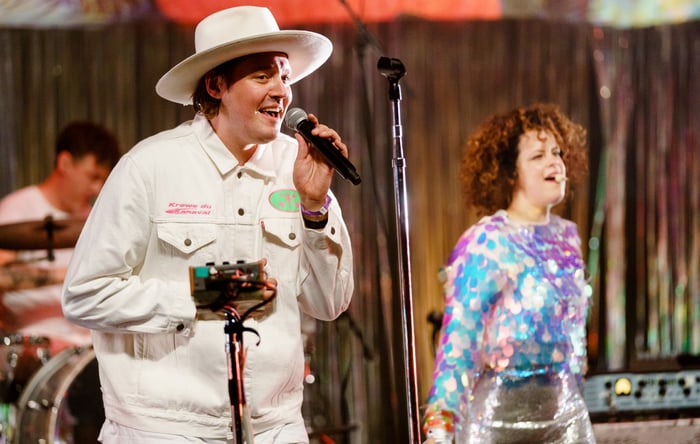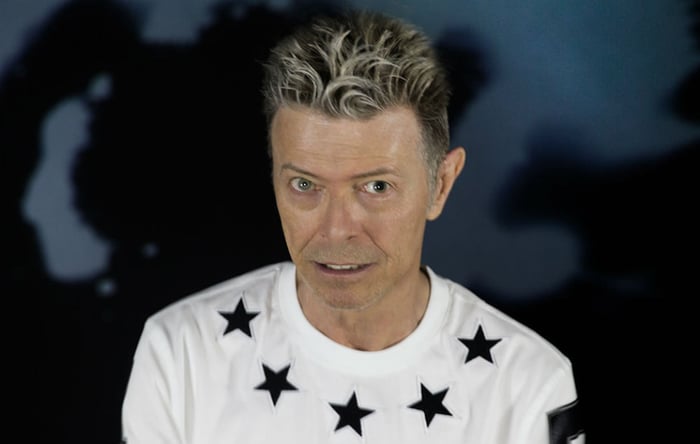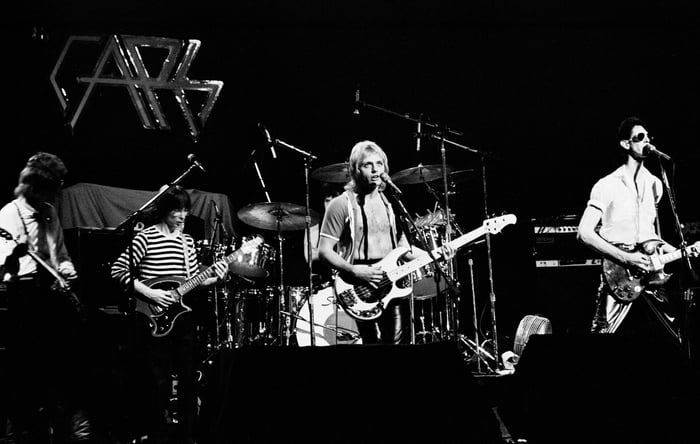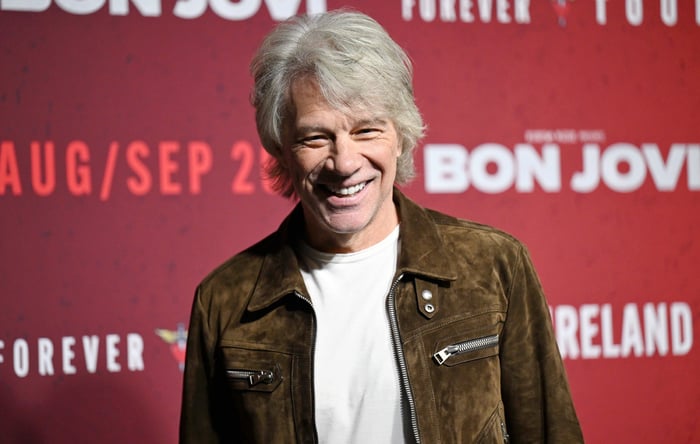
Brandi Carlile Returns to Herself: A Soulful Journey Back to Roots
Brandi Carlile Returns to Herself: A Soulful Journey Back to Roots
Brandi Carlile returns to herself with heartfelt lyrics and a blend of Americana and pop, exploring the complexities of love and identity in her latest album.
A Star’s Evolution: From Collaborations to Self-Reflection
Brandi Carlile’s name has been lighting up the music scene for years thanks to her powerhouse collaborations with legends like Elton John and Joni Mitchell. These partnerships have undeniably elevated her profile, earning her multiple Grammy Awards and widespread acclaim. But let’s be honest—she could easily cruise on these star-studded connections, churning out duets and writing hits for other icons like Tanya Tucker, and still call it a day.
Yet, that’s not Brandi’s style.
Before dropping her eighth studio album, Returning to Myself (Interscope/Lost Highway), she revealed a mindset that’s both refreshing and deeply thoughtful. It’s a glimpse into an artist not content with resting on laurels but eager to revisit her roots with newfound perspective.
“Why is it heroic to untether, when the tense work of togetherness is so much more interesting? Because I don’t want to do it. Because I don’t want to return to myself. And that’s why I will.” – Brandi Carlile

Brandi Carlile, captured beautifully by Collier Schorr.
Returning to the Heart of the Music
Here’s the real kicker: Brandi Carlile, a Washington-bred singer-songwriter, is as talented as ever. She’s got the chops, the voice, and the credibility—backed by unforgettable performances on talk shows, award stages, and even Saturday Night Live. Yet, with Returning to Myself, she poses a question that feels as personal as it is universal: Who is she right now?
The album’s opening track, named after the record itself, is a bold statement—unvarnished in its lyrical honesty and vulnerably genuine. Follow that with “Human,” and you have two songs that may seem straightforward or even plain on paper, but Carlile breathes life into them with a warmth and sincerity that draws you in.
What makes this album especially intriguing is its production roster. Collaborators include Aaron Dessner of The National, Justin Vernon from Bon Iver, and powerhouse producer Andrew Watt, known for his work with Lady Gaga and Bruno Mars. Despite this star lineup, the album keeps a modest, intimate vibe more than the bombastic productions you might expect.
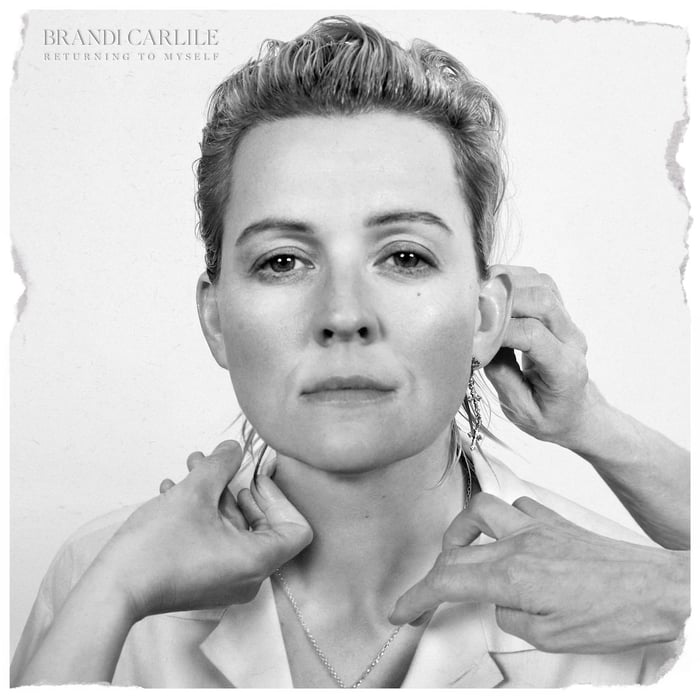
The cover art for "Returning to Myself" reflects the introspective tone of the album.
The Soundscape: Folk Roots Meets Modern Shine
Some tracks like “A War With Time” and “No One Knows Us” showcase Carlile’s signature blend of folk and modern pop, with shimmering guitar work and a captivating vocal cadence that’s uniquely hers. But here’s the catch—while her performances sparkle, the choruses often feel a bit muted, lacking the explosive hooks one might hope for after such a long career’s worth of anticipation.
“You Without Me,” which also appeared on her collaborative album with Elton John, Who Believes in Angels?, fits this mold as well. On the album, it seems almost like filler—yet anyone who’s seen Brandi live knows these songs can soar with the right arrangement. There’s something magical about her stage presence that can transform even the quietest moments into powerful experiences.

Bright Spots and Emotional Highs
Though the album takes a mellow, introspective route, it’s not without its shining moments. “A Woman Oversees” is a slow-building, soulful track that feels like a modern gospel hymn—simple yet deeply moving, begging for repeat listens.
Then there’s “Church & State,” a fiery anthem written on the volatile night of the 2024 election. The raw emotion punches through the speakers, making it a standout with its outspoken energy and rock-driven spirit.
In fact, more songs like these could have added an extra spark. It’s almost surreal to hear these politically charged and socially conscious vibes now, given how the world continues to grapple with uncertainty. Carlile’s previous work, especially 2018’s By the Way, I Forgive You, was fearless in addressing social issues—a quality reminiscent of her idol, Joni Mitchell.
A Loving Nod to a Legend
Speaking of Mitchell, the album’s most poignant moment arrives with “Joni,” a heartfelt tribute to the legend herself. The song conjures the spirit of the Joni Jam series, where Carlile and Mitchell played and shared music during Mitchell’s recovery from a brain aneurysm.
This connection to collaboration and shared creativity runs deep in Carlile’s work, highlighting the joy she finds not just in solo artistry, but in community and musical kinship.
“The magic of playing and making music with others has become part of Carlile’s brand at this point, for good reason.”
Her admission that she didn’t exactly want to “return to herself” right now is telling. It suggests a woman wrestling with identity, growth, and the desire to keep evolving. Maybe in 2025, the greatest inspiration comes from togetherness, from jamming and the energy of connection, rather than solo spotlight.
Where Does Brandi Go From Here?
Returning to Myself feels less like a destination and more like the first step of a new journey. It’s a gentle reassessment rather than a triumphant arrival, a record that reflects the quiet complexities of life and artistry at this stage in Carlile’s career.
Her gifts—voice, songwriting, and authenticity—remain undeniable. Whether she’s standing firmly in the spotlight or leaning into the collaborative spirit that fuels her, Brandi Carlile continues to be a compelling figure in music, one whose story is worth following every step of the way.
FAQ
- What’s the core theme of Brandi Carlile’s Returning to Myself?
The album explores self-reclamation, vulnerability, togetherness, and reflection on love and personal identity. - Who produced Returning to Myself?
Notable producers include Aaron Dessner (The National), Justin Vernon (Bon Iver), and Andrew Watt (Lady Gaga, Bruno Mars). - How does this album differ from Brandi Carlile’s previous work?
This record leans more into introspection and lowkey arrangements, with less emphasis on the broader social commentary that marked earlier albums. - Are there any standout tracks?
“A Woman Oversees,” “Church & State,” and the tribute “Joni” are highlighted for their emotional depth and musical charm. - Does Brandi Carlile still perform these songs live?
Yes, and her live performances often elevate the material, showcasing her charismatic stage presence and vocal prowess.
If you’re inspired by Brandi Carlile’s journey and want to celebrate her artistry, shop your favorite album cover poster at our store for a touch of musical nostalgia and style. Explore the collection here.
 | DISCOUNTGET 30% OFF*Use code on your next order:
|
* This post may contain affiliate links, meaning we earn a commission if you make a purchase through these links, at no additional cost to you.



